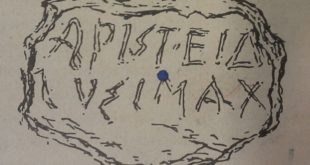The heroism of Harmodius and Aristogeiton was a myth, but Athenian democracy was not. In the two great wars of the fifth century — the Persian and the Peloponnesian — the Athenians clearly felt they had what would now be called a “way of life” which was worth fighting for. Cleisthenes, although he was of nobler blood than Solon, gave more power to the poor than Solon had done. Nearly all Athenian citizens now had a vote in the Assembly, a body which approved laws discussed in the Council of Five Hundred. The Five Hundred were elected by the citizens …
Read More »